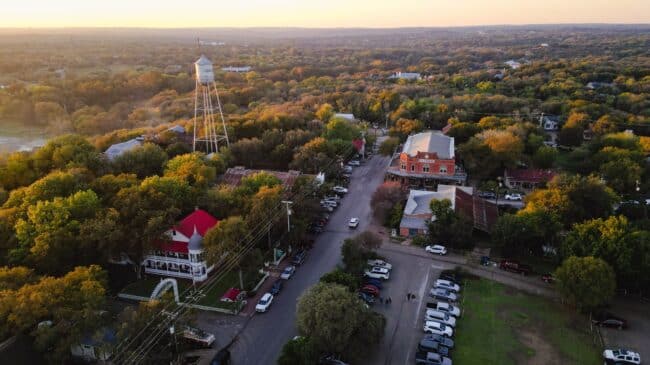Rafael Marfil, Verge Productions, LLC, Enrico Marfil, Naomi Marfil, Korey A. Rholack, Daniel Olveda, and Douglas Wayne Mathes
Plaintiffs – Appellants,
v.
City of New Braunfels, Texas,
Defendant – Appellee.
Introduction and summary of argument
In 2011, the City of New Braunfels passed an ordinance banning short-term rentals (STRs) in large portions of the city. A coalition of STR owners challenged the ban, arguing it violated their property rights under the Fourteenth Amendment and the Texas Constitution.
The city initially moved to dismiss the case without any discovery, claiming STRs were nuisances. The lower court granted the motion, but this Court—after considering party briefing and supporting amicus briefs—reversed, directing the district court to weigh the evidence after discovery.
Discovery revealed the city’s claims were baseless. STRs in New Braunfels are prevalent, and the city has issued no nuisance citations against STR properties. Studies and data contradicted the city’s assertions about property values and neighborhood character. Nevertheless, the district court granted the city’s motion for summary judgment in a cursory opinion that ignored the evidence and this Court’s directive. This appeal thus seeks to restore meaningful judicial scrutiny to property-rights cases.
This controversy highlights two unresolved aspects of the ongoing housing debate—one legal, the other political. First, under the common-law conception of ownership, private proprietors are firmly within their “bundle of rights” to lease realty for as long or as short as they wish. They can only be prohibited from engaging in nuisant or harmful uses. Since at least Cedar Point Nursery v. Hassid (2021), the Supreme Court has clarified that property rights are fundamental and thus subject to at least a heightened degree of judicial scrutiny. 594 U.S. 139, 158 (2021) (“We cannot agree that the right to exclude is an empty formality, subject to modification at the government’s pleasure. On the contrary, it is a ‘fundamental element of the property right’ that cannot be balanced away.”) (cleaned up).
This contrasts with “rational basis review,” which attaches to rules and regulations that do not implicate fundamental rights and are, therefore, permitted for any conceivable police-power purpose. This is certainly the case under Texas law. Zaatari v. City of Austin, 615 S.W.3d 172 (Tex. App.–Austin 2019) (holding city ordinance banning short-term rentals of single-family residences not owner occupied was infringed on fundamental property rights). As amici will discuss, heightened constitutional protection against restrictions, specifically on short-term rentals, is not limited to the property rights of owners but extends to guests’ reciprocal “right to establish a home.” See, e.g., Keen v. City of Manhattan Beach, 292 Cal. Rptr. 3d 366, 370 (Cal. App. 2022) (“It is possible to reside somewhere for a night, a week, or a lifetime”); Wilkinson v. Chiwawa Comms. Ass’n, 327 P.2d 614, 620 (Wash. 2014) (“If a vacation renter uses a home ‘for the purposes of eating, sleeping, and other residential purposes,’ this use is residential, not commercial, no matter how short the rental duration.”).
Second, America’s housing sector has been in turmoil for decades now—at least as early as the mid-2000s. Despite widespread awareness and justified concern for the ever-dwindling supply of available units, innovative solutions—including short-term rentals alongside accessory-dwelling units and rowhouse developments—remain relatively few and far between.
Short-term rentals are acute targets of powerful NIMBY (“not in my backyard”) pushback and the longtime failure of proponents to organize a coherent political and policy response. As one among several correctives, amici strongly believe that caselaw on the topic of increasing access to housing should begin integrating a growing research literature demonstrating the economic, social, and cultural benefits of these alternatives that far outweigh the exaggerated externalities.
Full Brief: ‘Marfil v. City of New Braunfels’
